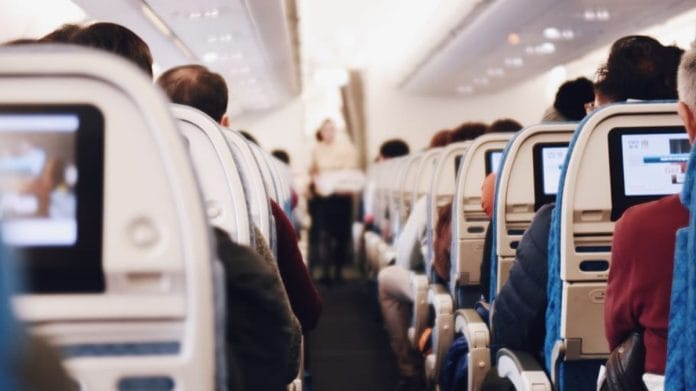New Delhi: The Union Civil Aviation Ministry announced Thursday that fares on domestic flights will be capped for three months as airlines look to restart operations on 25 May, two months after the Covid-19 lockdown was first announced.
Under the new framework, fares have been capped on the basis of flight durations. For example, the ministry said, fares in the 60-120 minute window, which includes flights between Delhi and Mumbai, have been capped between Rs 3,500 and Rs 10,000.
The ministry also announced the changes passengers can expect in flight operations — for one, there will be no food onboard, and the crew will be dressed in protective equipment. However, contrary to speculation, there will be no rule on keeping the middle seat vacant since doing so would anyway not establish the mandated one-metre distance between passengers.
Also Read: Air travel is the safest mode of transport in Covid times. India can boom here
Ready to fly again
Addressing a press conference Thursday, Union Civil Aviation Minister Hardeep Singh Puri said the government had specified a minimum and maximum price for every flight route based on duration.
The rail fares on each route were taken into account while devising the caps, he said.
Domestic flight routes across the country have been divided into seven sections for this purpose — less than 40 minutes, 40-60 minutes, 60-90 minutes, 90-120 minutes, 120-150 minutes, 150-180 minutes, 180-210 minutes.
Aviation Ministry Secretary Pradeep Singh Kharola, who was also present at the press conference, said, under the the new fare structure, a Delhi-Mumbai flight would have a minimum fare of Rs 3,500 and maximum of Rs 10,000.
While laying down the new flying framework, Puri said the installation of Aarogya Setu app — the government app meant for contact tracing — would not be mandatory for passengers.
Passengers can just fill a self-declaration form and go for thermal screening instead, Puri said. He added that passengers won’t have to undergo a 14-day quarantine either, as is mandatory for train passengers.
The ministry said airlines would have to cut their operations in the metro-to-non-metro sector. Where weekly departures are less than 100, airlines will have to run a third of their approved summer capacity for 2020. No limits apply for other routes. This change will remain in effect until the midnight of 24 August.
Physical check-in has been done away with, but passengers have to report to the airport at least two hours before departure with no more than one piece of check-in luggage. Passengers will only be provided water bottles on board, and no meals. The cabin crew will wear protective equipment.
Puri also weighed in on the Vande Bharat exercise, which involves the repatriation of thousands of Indians stranded abroad by the Covid-19 lockdown, as he announced the new normal for air travel.
“We have brought back more than 20,000 of our citizens from various destinations. We have at the same time utilised outgoing aircraft to carry our citizens who are normally resident abroad and needed to travel because of jobs and other professional commitments,” he added.
Also Read: Face shields, gowns, masks — the new attire for cabin crew post lockdown






